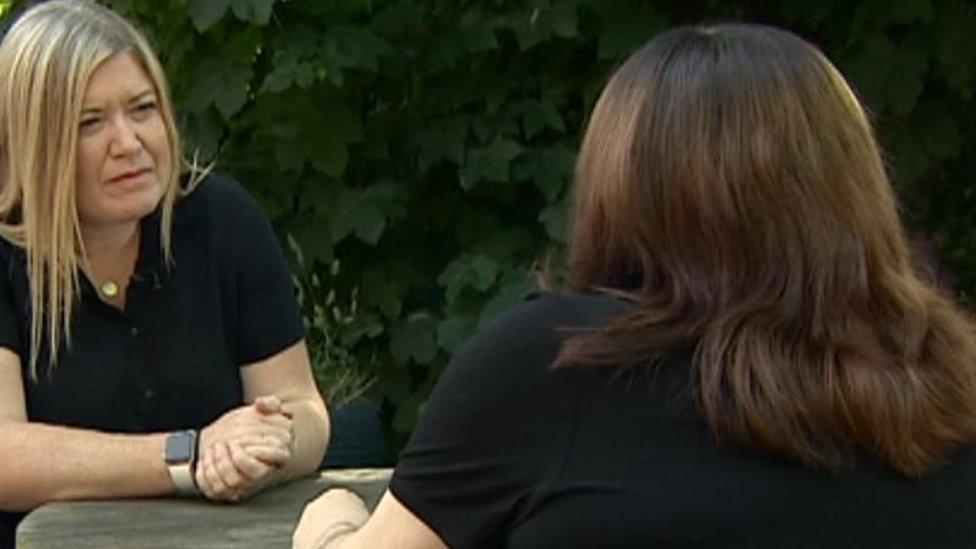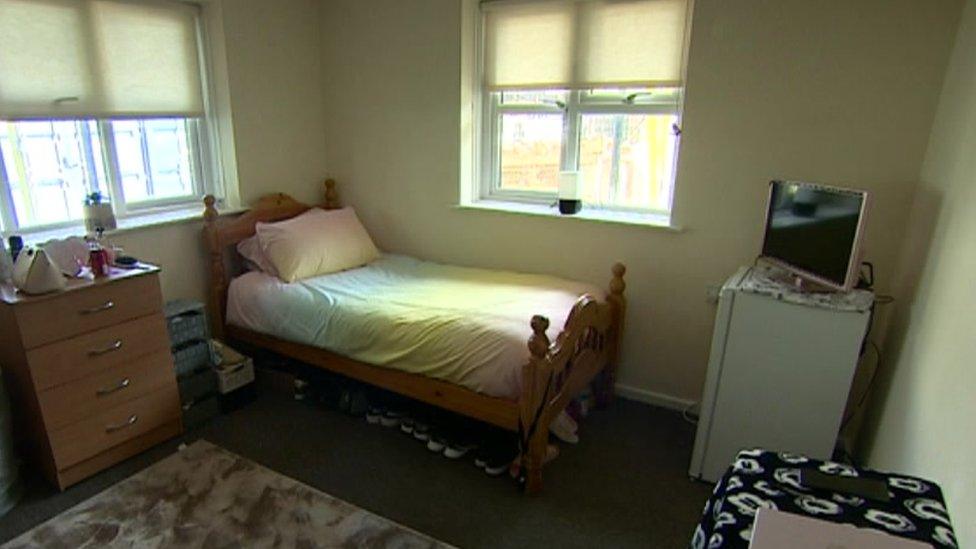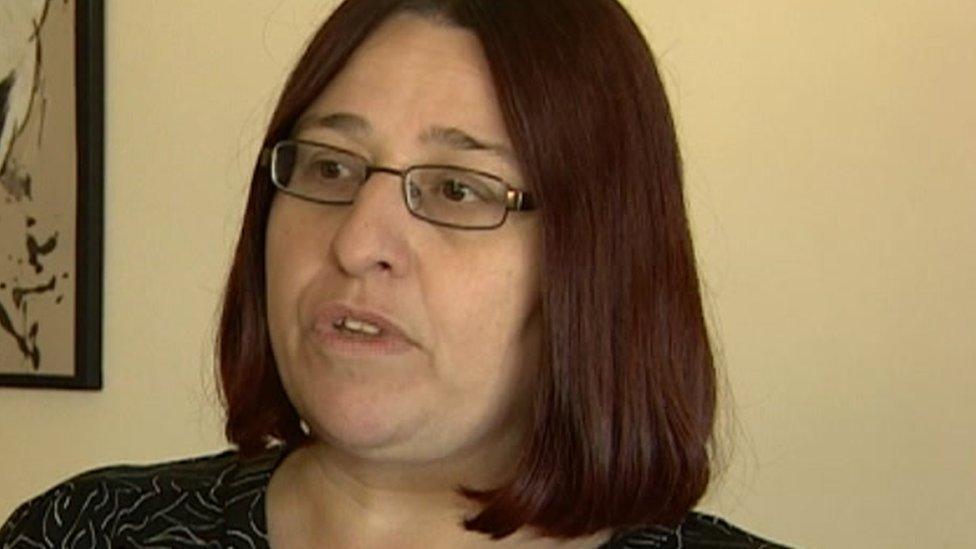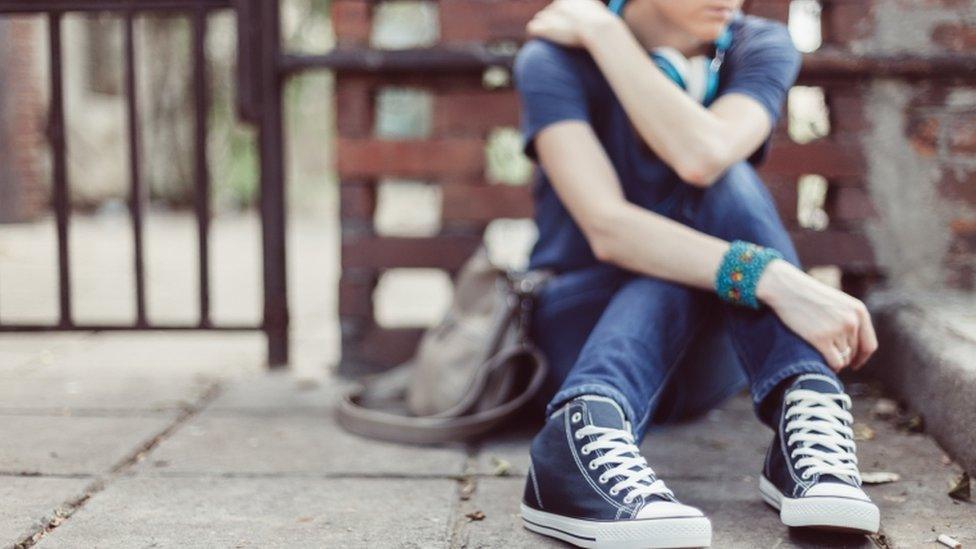Pilot for domestic abuse victims sleeping rough in Birmingham extended
- Published

BBC reporter Kath Stanczyszyn (left) spoke to Victoria, not her real name
A pilot service providing a safe house for women sleeping rough after fleeing domestic abuse has been extended.
The Respite Rooms in Birmingham, which offers temporary accommodation and specialist support, has been extended by at least six months until March.
Birmingham was one of 12 areas in England included in the £3.7m government sponsored pilot.
Victoria, not her real name, was one of 10 women helped in the city since December.
The government said Respite Rooms would focus on supporting women and a separate provision would be made for male rough sleepers.

The accommodation at the safe house includes four rooms, a shared kitchen and garden
Victoria ended up sleeping on the streets after leaving an abusive relationship.
"I ran away from my perpetrator which was my boyfriend at the time," she said.
"I'd had enough of his controlling ways and what he was doing to me. He wouldn't let me be with my family or see my friends.
"I didn't know what to do, I slept on the streets for a few nights and then I got told by the police that I needed to move on."
Victoria, who has struggled with addiction, said it was "scary, lonely and cold".
"All I had was one small bag," she said.

Joanne Spence of Trident Reach said women would be at greater risk without the service
Under the scheme, Birmingham City Council commissioned Trident Reach to provide four rooms where victims can stay for up to eight weeks.
It also supports rough sleepers experiencing violence and will help victims register with a GP and access mental health services.
Victoria said it helped her when she was in a vulnerable position. "I was scared," she said, "but I was made to feel safe."
Domestic abuse was one of the main reasons people became homeless, the council said.
"Without this service people would be at much greater risk from their perpetrators but also from other perpetrators who would potentially see them as much more vulnerable targets," Joanne Spence, from Trident Reach, said.
If you have been affected by issues raised in this article, help and support is available via BBC Action Line.

Follow BBC West Midlands on Facebook, external, Twitter, external and Instagram, external. Send your story ideas to: newsonline.westmidlands@bbc.co.uk
Related topics
- Published27 July 2021
